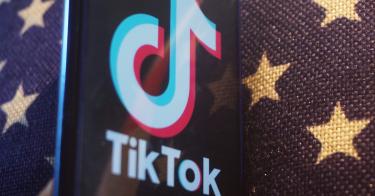TikTok is suing the United States government over a new bipartisan federal law requiring it to separate from its Chinese government-controlled parent company. Both the facts and the law demonstrate that the lawsuit should fail. TikTok is basing its argument on false claims that it is a champion of free speech and that the First Amendment of the Constitution protects its legal ties to the Chinese Communist Party.
These are lies. The truth is that the First Amendment protects Americans’ right to free speech, not TikTok’s right to be owned by the Chinese Communist Party.
TikTok’s cynical claim to champion free speech should fool no one. Chinese law requires the company to follow the Chinese Communist Party’s commands. The Chinese government owns part of TikTok’s parent company, ByteDance, which employs a CCP official as its chief censor. TikTok has a documented history of spying, repeatedly lying to Congress, and exploiting American children. The company’s attempt to misuse U.S. freedoms against our national security is clearly disproven by the facts.
TikTok’s legal claims are also meritless. The company continues to falsely claim that the new federal law is a “ban.” It is not. TikTok can continue operating in the United States if it’s sold to a company that’s not controlled by an adversary government. But TikTok keeps lying about the federal law because the Chinese government has banned the sale of TikTok’s algorithm as a state secret, which only shows that national security concerns about TikTok’s inner workings are justified.
>>> Conservatives Have Been Warning About TikTok for Years
It's true that TikTok has already won some victories in American courts. The company survived an attempt to ban it by the Trump administration and more recently won a preliminary legal battle against a state-level ban in Montana. But neither of these cases indicate that TikTok is likely to prevail in a constitutional challenge to the new federal law.
The Trump administration sought to ban TikTok in 2020 using a sanctions law, the International Emergency Economic Powers Act, or IEEPA. But IEEPA is outdated and has not kept pace with modern tech threats. It contains an exception that was originally intended to prevent the U.S. government from banning literature.
The law was later amended in 1994—when the internet was in its infancy—in a way that courts have interpreted to cover all data. TikTok was easily able to use this loophole to convince a court that IEEPA couldn’t be used against the company. The case wasn’t decided on free speech grounds. IEEPA was simply the wrong tool for the job and needs to be updated for a time when America’s greatest adversary controls global tech companies.
Montana’s effort to ban TikTok was blocked last year by a federal court. Though the court laid out a First Amendment basis for its decision, the outcome rested on the court’s view that Montana’s national security concern was an infringement of federal authority. This sealed TikTok’s victory on constitutional grounds because it led the court to conclude that the ban would fail under any of the relevant standards of scrutiny.
That decision also meant that Montana could not meet the First Amendment requirement of “tailoring”—the closeness of the fit between the restriction and its intended purpose—because the court rejected Montana’s security interests. TikTok could not replicate this outcome when challenging the federal law.
More relevant is that the Montana court also dedicated part of its analysis to whether Montana’s law left “ample alternative channels of communication.” Startlingly, the court decided that TikTok’s allegedly unique features were sufficient to invoke constitutional protections. The court’s analysis would give social media platforms, including those controlled by hostile foreign governments, a distinctly privileged position in First Amendment jurisprudence, suggesting that any government action that causes such a platform to cease operating may run afoul of the First Amendment regardless of legitimate national security concerns.
>>> TikTok’s New Election Integrity Plan Is a Trojan Horse for Censorship
If future rulings affirm the Montana decision, it would significantly favor social media companies. TikTok probably couldn’t expect to replicate this outcome through successive appeals because this ruling rejected TikTok’s clear national security threats. Congress extensively examined those threats while crafting the new law, which is structured differently. The federal law requires divestment rather than simply banning the app outright as the Montana decision sought to do.
ByteDance and the CCP will decide whether TikTok is banned in the United States if they refuse to divest. The decision won’t be the U.S. government's, further reducing the chances that other judges would adopt the Montana court’s conclusions.
Ultimately, it’s preposterous that a social media platform controlled and censored by the CCP would be able to neutralize any national security action by claiming it is an “indispensable” provider of free speech. Thankfully, this cynical attempt to denigrate American constitutional freedoms is likely to be rejected in any lawsuit TikTok brings. TikTok’s days are numbered.
This piece originally appeared in Blaze Media



